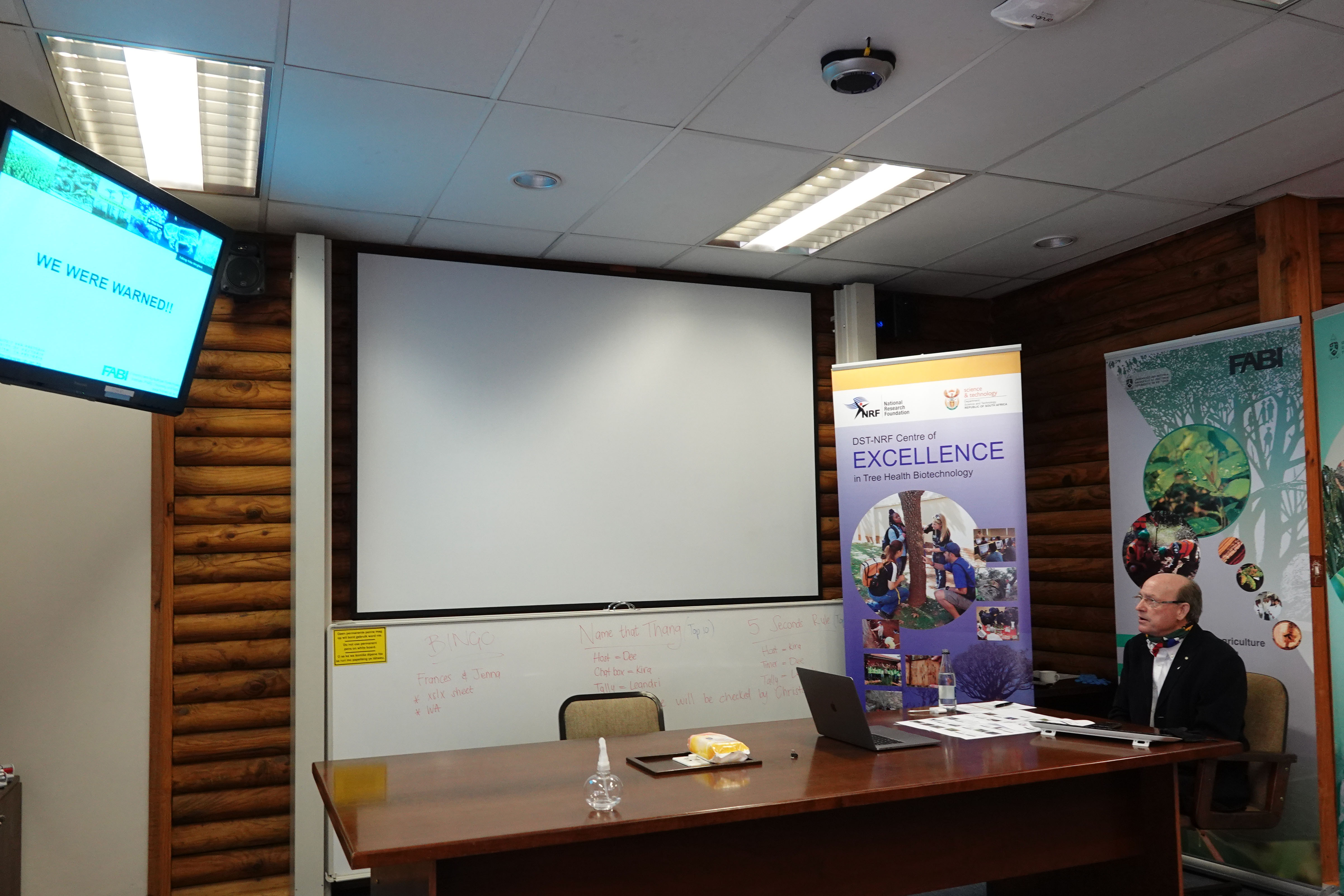FABIans participate in FAO forest invasive species webinar 2020-08-07
The United Nations (UN) has declared 2020 the International Year of Plant Health (IYPH-2020). As part of this year’s activities, the Food and Agriculture Organization (FAO) of the UN launched an online webinar series highlighting plant health issues across the globe. FABI founding Director and Immediate Past President of the International Union of Forest Research Organizations (IUFRO), Prof. Mike Wingfield along with Prof. Brett Hurley were invited to present in a webinar covering the topic “Forest invasive species - the next global pandemic?” on 29 July. FAO Forestry Officer (Forest Health & Protection), Dr Shiroma Sathyapala moderated the 90 minute session that saw more than 600 attendees from across the globe join the virtual symposium.
Mike’s opening address drew comparisons between the current SARS-CoV-2 pandemic and tree health. He explained that much like the virus, many tree health issues stem from an accidental introduction of a pest or pathogen into a new environment ,and that only by understanding the pathways of movement, such as the live plant trade, can we address this considerable threat. He stressed the importance of quarantine but also the reliance on education, science and technology to prevent or fight both this pandemic but also forest invasive species. “We need to promote investment in science and technology, education and engagement with Governments to promote evidence-based policy. But, just as for the SARS-CoV-2 virus, there are no silver bullets” he concluded.
Invasive species are currently the second most important reason for loss of biodiversity after habitat destruction and pests and diseases do not recognise borders. The Forest Species Invasive Network for Africa (FISNA) coordinator, Prof. Brett Hurley participated in a panel discussion and spoke specifically about biological control as an environmentally-friendly means of managing invasive species. He noted that biocontrol was far more effective in combatting forest pests than agricultural pests. FISNA, in partnership with FABI, has been proactive in sharing knowledge and collaborating with colleagues on the African continent. Other initiatives in which FABI has been involved include the publication by the FAO of a “Guide to the classical biological control of insect pests in planted and natural forests”. This publication is in response to the serious threat of insect pests worldwide and the importance of biological control as a management option. Brett explained how using a three-pronged approach of augmentative biocontrol, using native species for biocontrol programmes and understanding the ecology and biology of invasive species, they can be controlled in an environmentally friendly but effective programme.





